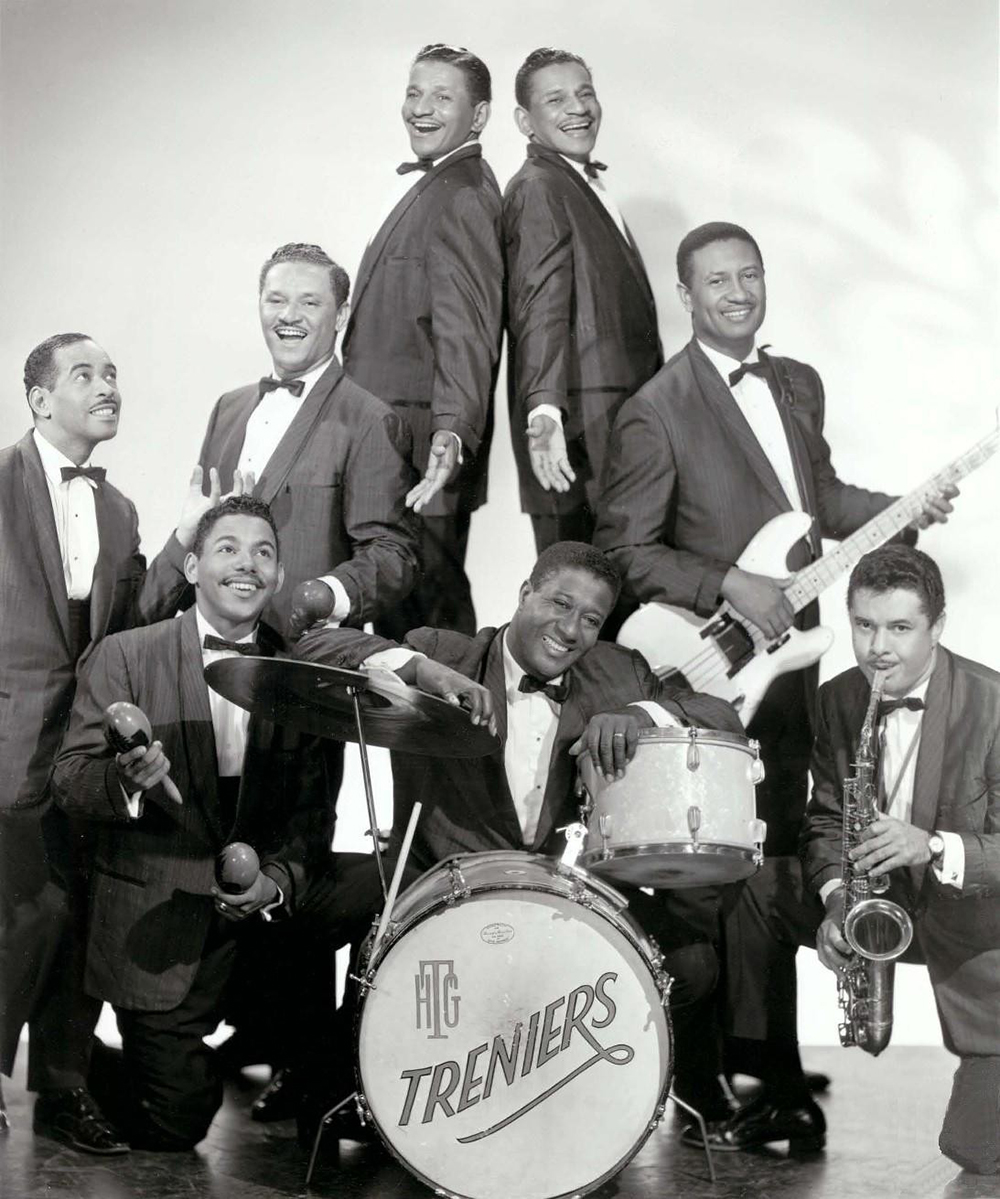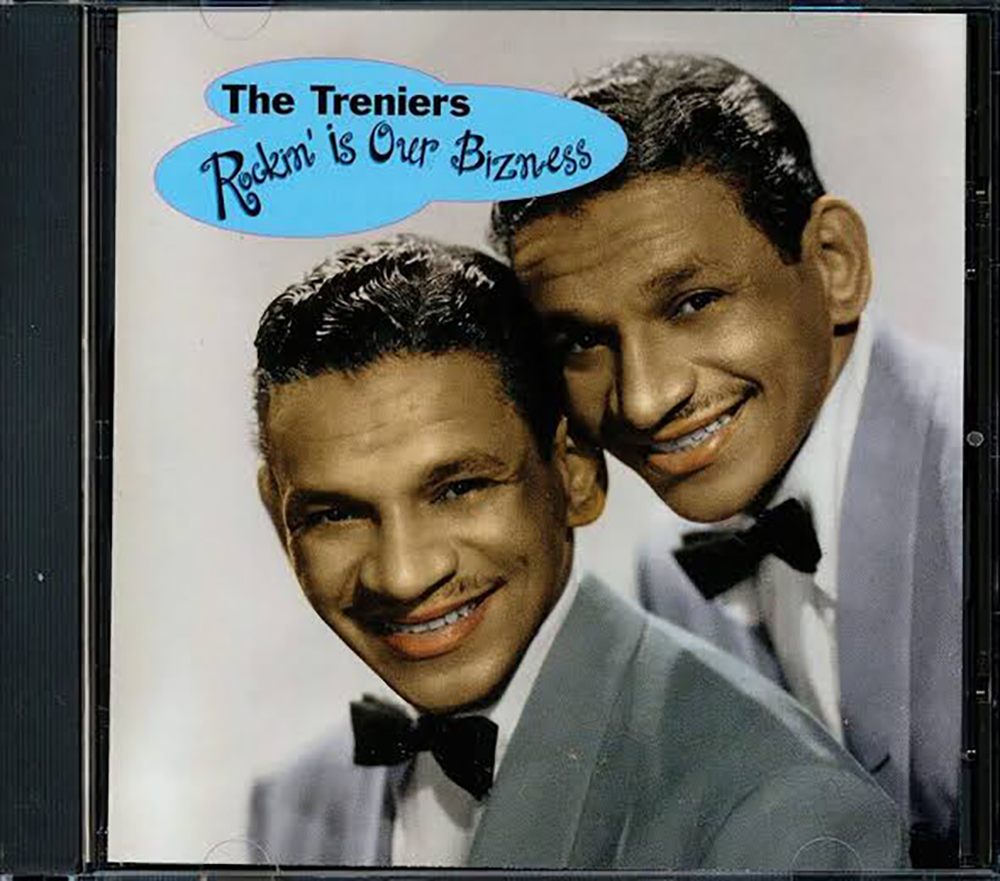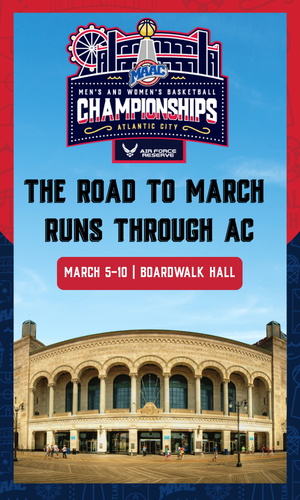By Bruce Klauber
During the 1980s, the Rendezvous Lounge within what was then called Resorts International was one of the most exciting spots to hear live music in any hotel/casino in Atlantic City. One-time Louis Prima saxophonist Sam Butera, whose story was detailed within these pages not long ago, deserves a lot of the credit for the raw excitement generated within that lounge.
But there were two other groups that shared the spotlight at the Rendezvous in those days, and those combos not only generated a load of excitement, they were also among the most innovative and historically important groups in pop music history.
When Resorts opened in 1978, the only frame of reference talent buyers had was: “What worked in Vegas?”

So when it came time to book Resorts’ main lounge, they booked Sam Butera and The Wildest, The Treniers and Freddie Bell and the Bellboys, three of the most successful groups in Las Vegas lounge history.
The Treniers were a family act, originally from Mobile, Ala., and built around identical twins, Claude and Cliff. Both paid their dues in the mid-1940s as vocalists with the popular big band of Jimmie Lunceford. When they left the band they formed a small group which included alto saxophonist Don Hill and another brother, Buddy. The group, known as “The Rockin Rollin’ Treniers,” recorded their first sides for Mercury Records in 1947.
Musically, their style was a combination of swing, jump blues and what later became known as rhythm and blues. Whatever they played in a performance, save a love ballad or two by Claude, was performed with an infectious, heavy backbeat that was simply irresistible. But there was much more to a Treniers’ show than just singing. They were in constant motion with their dancing, frenetic saxophone solos and acrobatics. Bill Haley, among others, listened to them and watched them carefully, and used more than a little of the Treniers’ shtick in his own act with the Comets.
The group was so visual, so musical and so entertaining that they were among the first rock-oriented groups to appear on national television. The group appeared on the Martin and Lewis television show, “The Colgate Comedy Hour,” in May of 1954. The comics, mainly Jerry, hammed it up with The Treniers during their rendition of “Rockin Is Our Bizness” (their spelling). The group also appeared in a few movies, including “The Girl Can’t Help It” and “Don’t Knock the Rock.”
Before being pegged to perform in the Resorts’ lounge in the 1980s, the group appeared often at the Jersey Shore, mainly at the Club Harlem in Atlantic City and the Hurricane and Beachcomber nightclubs in Wildwood. When they finally hit the stage of the Rendezvous Lounge, The Treniers had already been in the business for more than 40 years, though there was no letup in the group’s electric energy.
When Cliff died in 1983, Claude took over leadership of the band with nephew Skip on vocals and original member Don Hill on saxophone. The group continued working until Claude passed away in November of 2003. He worked until two months before his death at 84.
The late and great broadcaster, Jerry Blavat, knew more about early rock than most. About The Treniers he said, “In the heyday of Las Vegas, The Treniers were one of the major lounge acts, even before Louis Prima. They sang, mimicked, danced and performed. They also had many outstanding recordings and set the pace for other lounge acts. They appeared in Atlantic City way before gambling, at the Club Harlem on Kentucky Avenue. They were one of Sammy Davis Jr.’s favorites, and I spent many an enjoyable night in Sammy’s suite after their performance when Sammy was appearing at Caesars and they were appearing in Atlantic City.”
Ferdinando Dominick Bello, who later became known as Freddie Bell, was born in Philadelphia and began his career in show business as a singer and multi-instrumentalist with various bands in Philadelphia and New Jersey, most notably in the band of Charlie Ventura’s brother, Ernie. Captivated by the sounds of early rock, Bell formed his first band, the Bellboys, in 1952, said to be the first white groups to play rock songs of the day.
In the mid-1950s, the group landed at the Sands in Las Vegas. Freddie Bell and The Bellboys became a mainstay of Las Vegas lounges of the Sands, Sahara, Desert Inn, and the Flamingo well into the 1960s. Summers were often spent in Wildwood at clubs where The Treniers often performed, the Hurricane and Beachcomber.

In 1955, the group recorded a song for the miniscule Teen Records label, that was first recorded by Big Mama Thornton. The song was called “Hound Dog,” and it was Bell’s version that Elvis Presley heard during a visit to Vegas. The group became important in the development of 1950s rock via a series of popular recordings, including “Giddy Up a Ding Dong.” Bell and the gang were also one of the first rock ‘n’ roll groups to tour England. They also appeared in several films, such as “Rock Around the Clock” with Bill Haley and His Comets, “Rumble on the Docks,” and 1964’s “Get Yourself a College Girl.”
Though The Bellboys disbanded in the mid-1960s, Bell continued performing in Vegas, sometimes in tandem with his wife, singer Roberta Linn. He continued playing in Vegas into the mid-1990s. He was one of the last acts to perform in the Sands lounge, which closed in 1996.
Las Vegas lounges popularized by Bell, Louis Prima, Sam Butera, and The Treniers may have been on the decline by the late 1970s and early 1980s, but what may have been old hat in Vegas was new to Atlantic City. The lounge at Resorts beckoned, and offered new life for Butera, The Treniers, and the reconstituted Freddie Bell and The Bellboys. Though Bell was into his 50s when he returned to the shore, all his energy — and then some — was on view on the lounge’s stage. Bell’s old Wildwood fans turned out in droves to hear “Giddy Up,” “Stay Loose Mother Goose,” and of course, “Hound Dog.”
Though Freddie Bell died at the age of 76 in 2008, his music lives on. Several record companies, including the Bear Family Records collector’s label, have issued boxed sets of Bell’s Mercury recordings and other gems. The music, as the song says, never ends.
Bruce Klauber is the author of four books, an award-winning music journalist, concert and record producer and publicist, producer of the Warner Brothers and Hudson Music “Jazz Legends” film series, and performs both as a drummer and vocalist.











